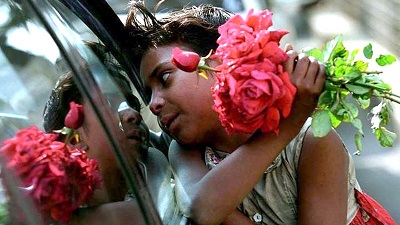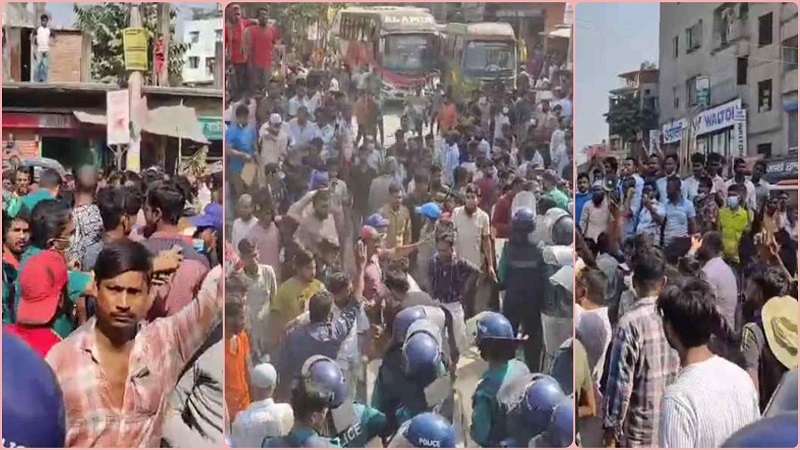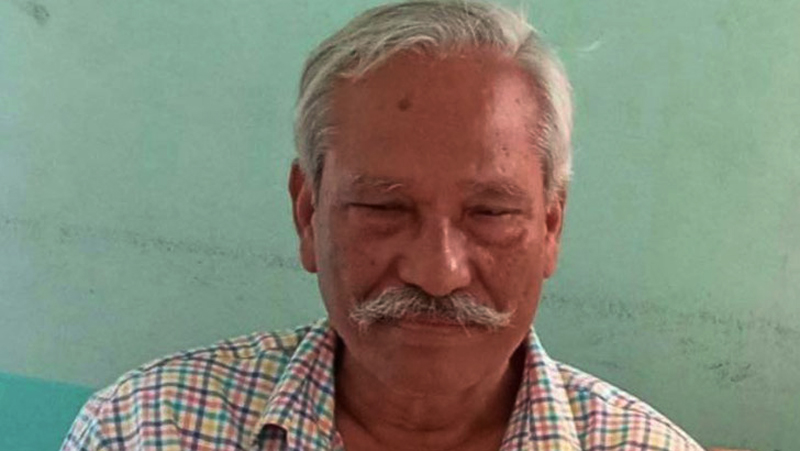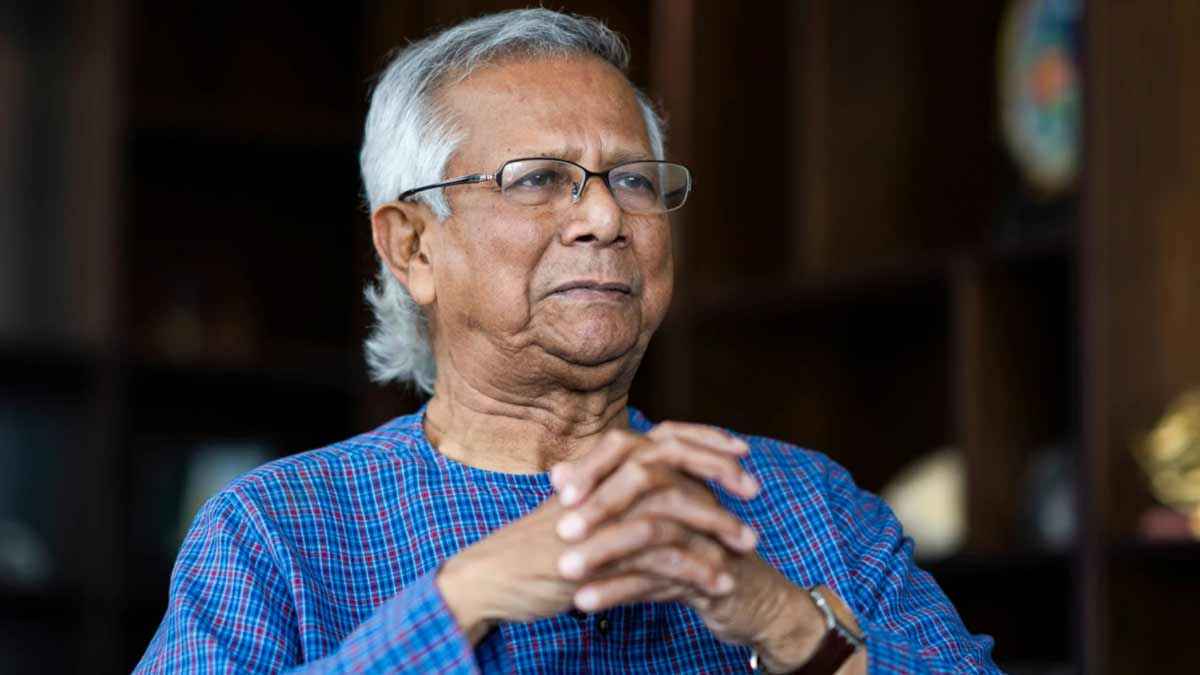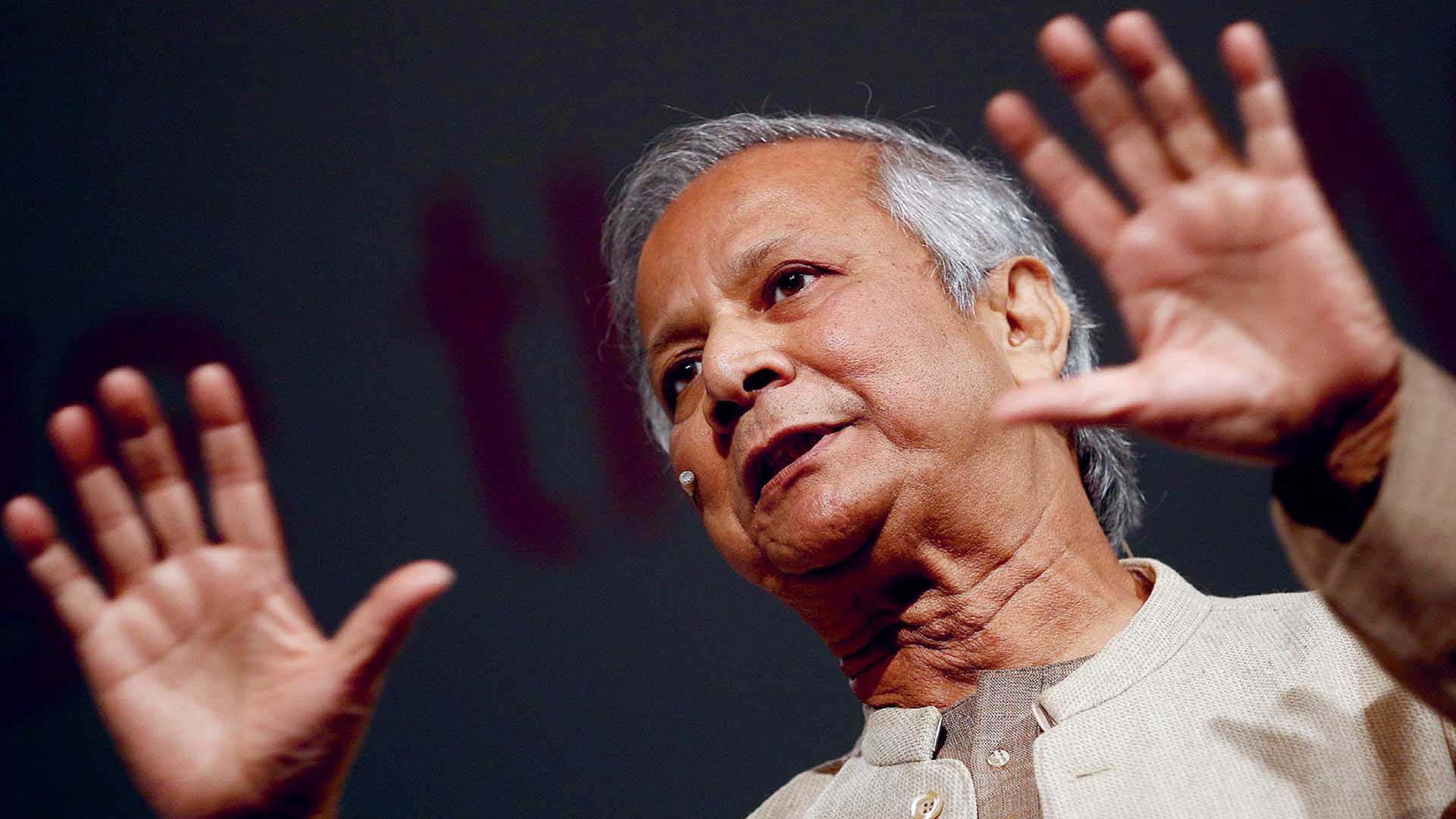Every time Rubel, 8, and Aklima, 6, two siblings, see a private car or micro bus slowing down in Bijay Sarani intersection of the capital, they rush towards it.
Rubel, holding a handkerchief in his hand, and Aklima, carrying a car duster, start cleaning cars hoping that the owner of it will provide them with some money.
When most parents are scared to let their children go out of their homes amid the Covid-19 outbreak, their parents make them bound to work under the blazing sun throughout the day without wearing a mask or using hand sanitiser to ward off the killer virus. The little amount of money they manage to earn everyday provides support for their four-member family— consisting of them and their parents.
Rubel and Aklima said their father doesn’t contribute to their family. He comes once in one or two weeks and seizes money from their mother.
If she doesn’t give him money, he tortures her. Their luckless mother cannot run their family alone working as a maid in different households in the capital.
Yet, the two siblings can consider themselves lucky as at least they get their mother when they return home.
Being orphaned and homeless, many street children live under the open sky without the guidance of any elderly member of the family.
Their parents give birth to them but don’t take their responsibilities. Sometimes, they leave family for their multiple marriages.
Apart from this, many children choose a profession on the streets after getting migrated to the cities because of river erosion and landlessness.
In short, their poverty forces them to fight an impossible battle for survival.
Local Education and Economic Development Organisation (LEEDO) has been working with these street children for years.
Its Executive Director Farhad Hossain stated, “The children under different voluntary organisations can somehow join the mainstream cycle of the society later. But stories of others are different.”
“Many of these street children die on the streets due to drug addiction. Some of them become the victims of trafficking. Traffickers sell their organs. And situation turns more critical for girl children. They are often tortured and forced to work as sex workers,” he added.
There is no survey on the number of street children in Bangladesh. It may vary from 2 to 2.5 million. At least 600,000 to 700,000 street children work in Dhaka and among them 50,000 live literally on the streets.
According to a report published by Social and Economics Enhancement Programme – SEEP, 44 percent street children are drug addicted, 41 percent have no bed to sleep, 40 percent cannot take bath, 35 percent practise open defection, 54 percent have none to look after them and 75 percent cannot visit a doctor if they are sick.
Emranul Huq Chowdhury, Chairperson of Bangladesh Shishu Adhikar Forum (BSAF), said, “A proper survey should be conducted to determine the number of street children in the country and frame a policy to rehabilitate them realising their needs. There are some initiatives taken by a few individuals, private and government organisations which are inadequate and temporary.”
“Until the responsible parents are not made accountable and a permanent system developed for street children they will continue to struggle. These children are different. Being deprived of the affection of their dear ones many of them are thrown into disorder.”
It is always difficult to handle them, he said, adding: “We need to understand their mental state. If they are taken care of, they also can reach their potentials.”


